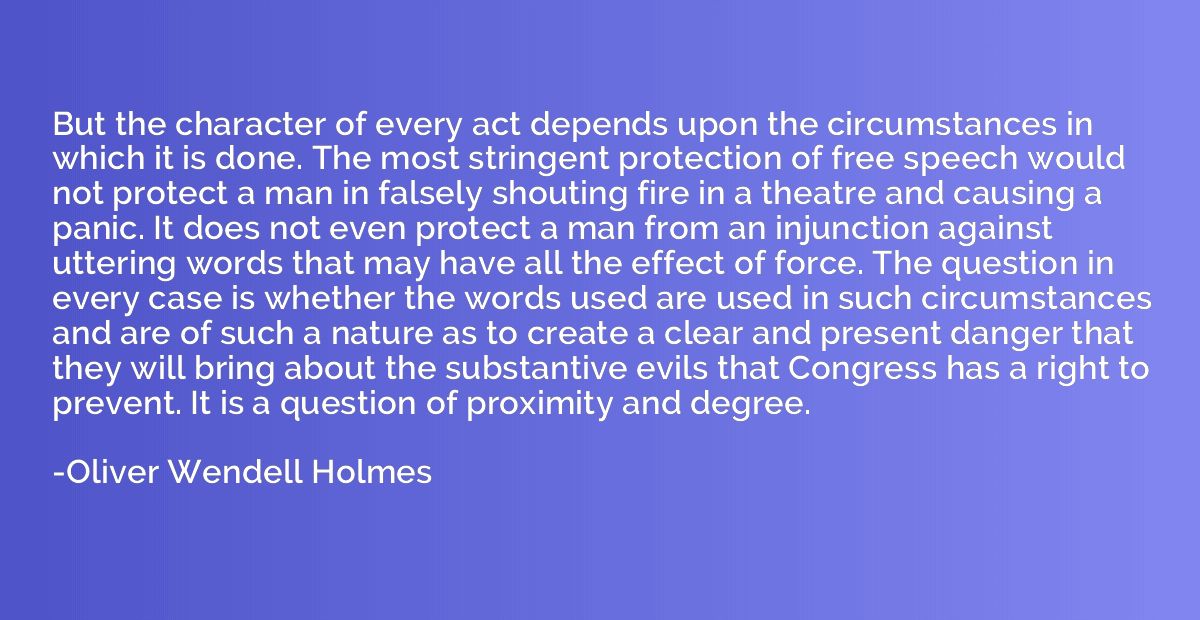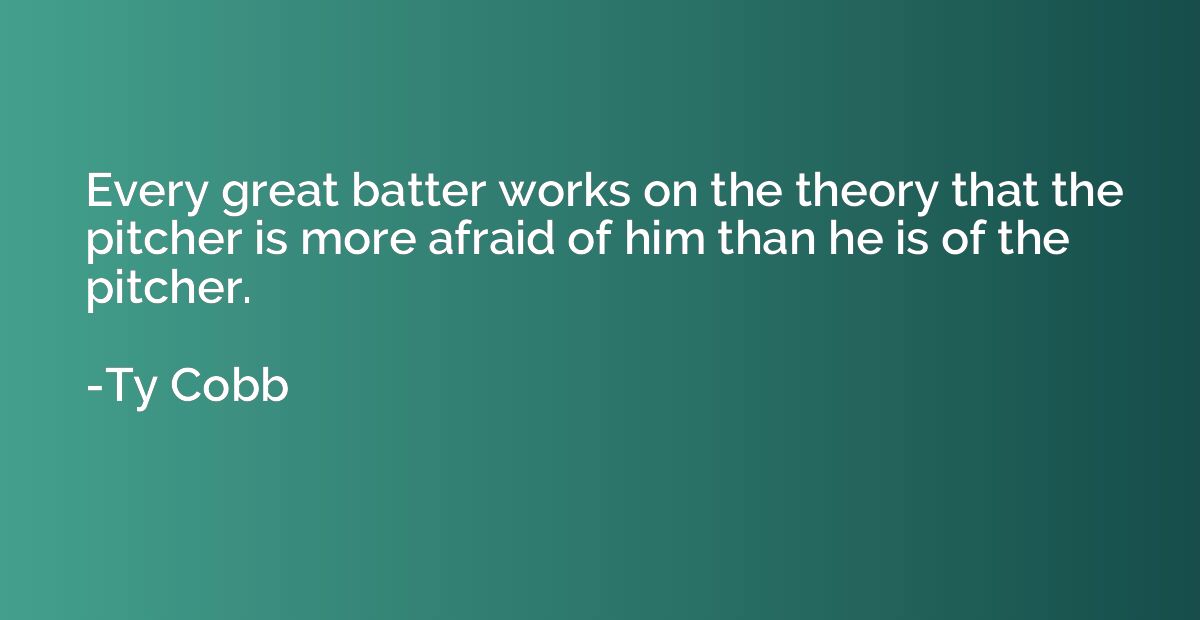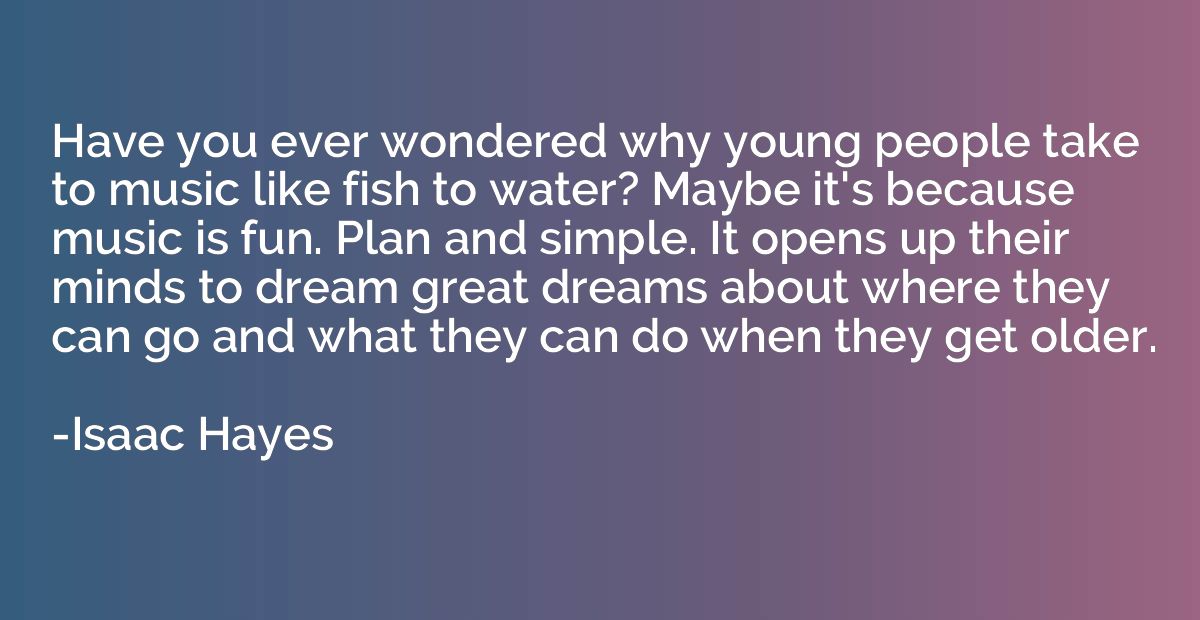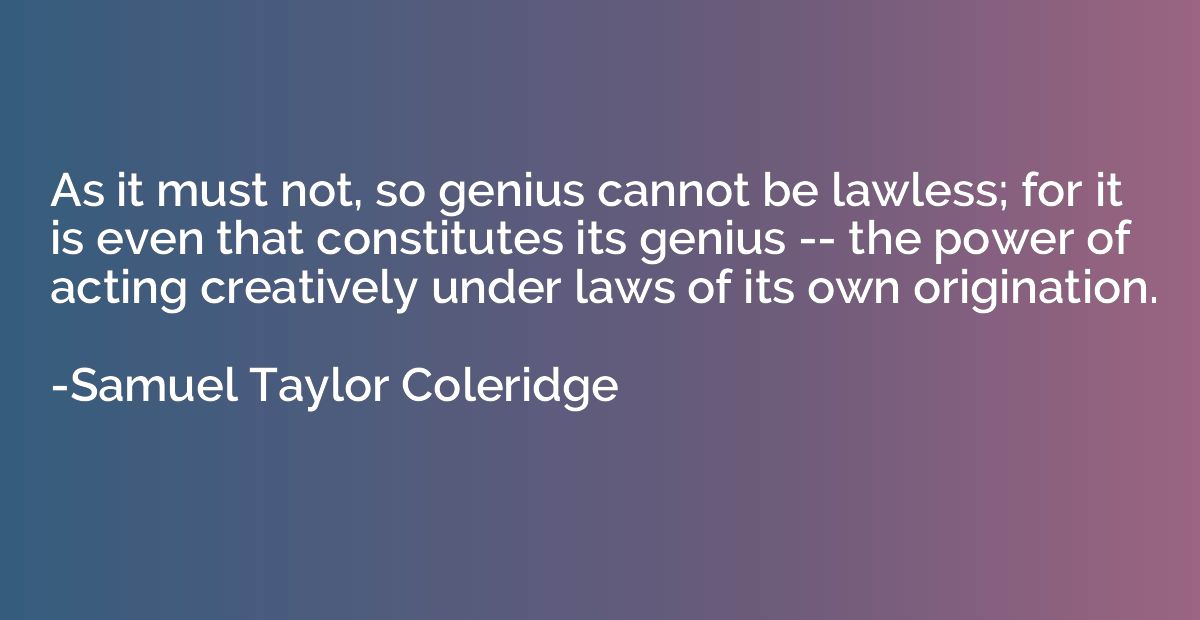Quote by Oliver Wendell Holmes
But the character of every act depends upon the circumstances in which it is done. The most stringent protection of free speech would not protect a man in falsely shouting fire in a theatre and causing a panic. It does not even protect a man from an injunction against uttering words that may have all the effect of force. The question in every case is whether the words used are used in such circumstances and are of such a nature as to create a clear and present danger that they will bring about the substantive evils that Congress has a right to prevent. It is a question of proximity and degree.

Summary
This quote by Justice Oliver Wendell Holmes Jr. explains that the character or moral evaluation of an act depends on the specific circumstances in which it occurs. While the protection of free speech is important, there are limits to it. The example given is that falsely shouting "fire" in a crowded theater and causing panic would not be protected under the First Amendment. The quote emphasizes that the question is whether the words used, in their specific circumstances, pose a clear and present danger that could bring about harmful consequences that lawmakers have the authority to prevent. It underscores the importance of considering the proximity and severity of the potential harm caused by speech.














